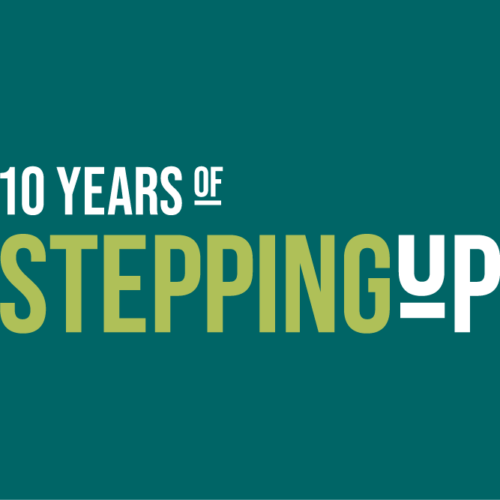Franklin County, Salt Lake County Each Allocate Millions to Improve Local Jail Systems
Two counties—one in Ohio, the other in Utah—are backing their words with action following separate reports from The Council of State Governments (CSG) Justice Center that highlighted major disparities in the length of time people with serious mental illnesses stay in each county’s local jail and the rate at which they’re rearrested following their release compared to people without these illnesses.
Franklin County, OH, and Salt Lake County, UT, have each recently made headway in their efforts to address the mental illness crisis in their jails, allocating millions of dollars to increase staffing and improve the responsiveness of their county jail systems.
The allocations came as 50 counties—including Franklin County—were selected to attend the National Stepping Up Summit in Washington, DC, an event that brought together jurisdictions of all sizes to learn from each other and from experts in the ongoing push to reduce the number of people with mental illnesses in local jails.
Franklin County
According to a report issued by the CSG Justice Center in May 2015, more than half of all adults entering the Franklin County Jail returned within three years, with people with mental illnesses and other behavioral health disorders staying longer and returning more frequently than those without behavioral health disorders. Additionally, information on the risk and needs of people being booked into the jail was not systematically collected and used to inform decision-making. As a result, many people with mental illnesses and other behavioral health disorders who were released from the jail were not connected to the necessary treatment and supports in the community.
To address these concerns, the Franklin County Commissioners unanimously voted last month to spend $1.4 million in 2016 to hire 27 new Sheriff’s Office employees to help screen people booked into the county jail for mental illnesses and substance use disorders. The screenings will help determine where people should be housed in the jail, as well as what services people should receive to while incarcerated.
“We want to do everything in our power to try to help those folks transition from jail back into the community to try to prevent the cycling of people through our doors,” Chief Deputy Geoff Stobart, who oversees the Franklin County jail, told The Columbus Dispatch in an interview last month.
Salt Lake County
In Salt Lake County, the CSG Justice Center found that one out of three people on pretrial supervision and one out of two people on county probation who were released from jail during an 11-month period did not fulfill the requirements of their supervision. During that time period, information on risk and needs was not consistently collected, and county officials did not know how many people released from jail had mental illnesses and other behavioral health disorders and how many were connected to the treatment and services they needed in the community.
In an effort to expand the community-based treatment services available to people with mental illnesses and substance use disorders, and to keep them from cycling in and out of homeless shelters and the county jail, in March, the Salt Lake County Council approved $2.2 million to be dispersed among the Sheriff’s Department ($863,000), Behavioral Health Services ($790,000), and Criminal Justice Services ($575,000). The funds will also be used to increase staffing and add detox beds in behavioral health facilities.
In addition, Salt Lake County Mayor Ben McAdams was authorized to negotiate contracts of up to $1.5 million each with two private service providers to establish programs geared toward reducing homelessness and reducing recidivism alongside the Sheriff’s Department, Behavioral Health Services, and Criminal Justice Services.
“It’s an enormous milestone to have the support of the County Council to move forward with the first steps of criminal justice reform,” McAdams told The Salt Lake Tribune in March.
Franklin and Salt Lake counties are part of the CSG Justice Center’s County Justice and Behavioral Health Improvement Project, which launched in October 2013, with funding support from the U.S. Department of Justice’s Bureau of Justice Assistance. The organization selected six counties from across the country to provide technical assistance toward improving responses to people with mental illnesses and substance-use disorders in their jails.
The sharp rise in school shootings over the past 25 years has led school officials across the U.S.…
Read MoreA three-digit crisis line, 988, launched two years ago to supplement—not necessarily replace—911. Calling 988 simplifies access to…
Read MoreIt would hardly be controversial to expect an ambulance to arrive if someone called 911 for a physical…
Read More Taking the HEAT Out of Campus Crises: A Proactive Approach to College Safety
Taking the HEAT Out of Campus Crises: A Proactive Approach to College Safety
The sharp rise in school shootings over the past 25 years has…
Read More From 911 to 988: Salt Lake City’s Innovative Dispatch Diversion Program Gives More Crisis Options
From 911 to 988: Salt Lake City’s Innovative Dispatch Diversion Program Gives More Crisis Options
A three-digit crisis line, 988, launched two years ago to supplement—not necessarily…
Read More Matching Care to Need: 5 Facts on How to Improve Behavioral Health Crisis Response
Matching Care to Need: 5 Facts on How to Improve Behavioral Health Crisis Response
It would hardly be controversial to expect an ambulance to arrive if…
Read More The 10-Year Impact—and Future—of Stepping Up: Facing the Behavioral Health Crisis in Jails and Communities with Real Solutions
The 10-Year Impact—and Future—of Stepping Up: Facing the Behavioral Health Crisis in Jails and Communities with Real Solutions
As the Stepping Up initiative marks its 10th year, America’s justice and…
Read More A “Once in a Generation Opportunity” to Improve Reentry for Nearly 2 Million People
A “Once in a Generation Opportunity” to Improve Reentry for Nearly 2 Million People
19 states were recently granted permission by CMS to reimburse critical reentry…
Read More Local Criminal Justice System Innovations in Mental Health Services: Q&A with CSG Justice Center Advisory Board Member Dr. Doreen Williams
Local Criminal Justice System Innovations in Mental Health Services: Q&A with CSG Justice Center Advisory Board Member Dr. Doreen Williams
"It is the humane, person-centered approach that supports and stabilizes individuals, their…
Read More









